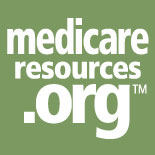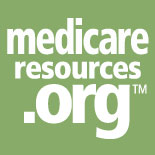House|Senate
114th Congress, Vote 144; House of Representatives #2
Medicare Access and CHIP Reauthorization Act of 2015
Official Title: To amend title XVIII of the Social Security Act to repeal the Medicare sustainable growth rate and strengthen Medicare access by improving physician payments and making other improvements, to reauthorize the Children's Health Insurance Program, and for other purposes.
HR 2: Medicare Access and CHIP reauthorization Act of 2015
Passed by the House March 26, 2015, 392-37 (4 abstaining).
Passed Senate (92-8) on April 14, 2015.
Signed into law April 16, 2015.
Synopsis: There were three primary aspects of HR 2:
- Repeal and replace the Sustainable Growth Rate (SGR) formula for calculating physicians’ Medicare reimbursements.
- Reauthorize Children’s Health Insurance Program (CHIP) funding for another two years.
- Continue Medicare’s transition away from fee-for-service and towards value and quality-based payments.
The law also includes provisions such as extending authorization for Medicare Special Needs Plans (SNPs) and funding for senior resources. But the three main parts of the law are the ones that garnered the most attention.
Overall, repealing and replacing the SGR formula was heralded as HR 2’s biggest success. The SGR was implemented in 1997 as a way to keep Medicare spending in check, but for more than a decade, following the SGR formula would have resulted in significant payment cuts for doctors. To prevent those cuts, Congress has enacted 16 temporary "doc fixes"" over the years.
HR 2 eliminates the SGR and the need for the annual "doc fix."" Instead, the law calls for a series of small but steady and predictable payment increases, followed by a payment freeze – but no pay cuts.
CHIP funding had previously only been authorized through September 30, 2015. HR 2 extends that funding for another two years.
MIPS, the Medicare Incentive Based Payment System (value-based payments) will gradually replace Medicare’s fee-for-service model. That means doctors will earn more when they have better patient outcomes, less over-treatment, and fewer complications.
Why supporters pushed for this bill
- HR 2 had significant bipartisan support, which was particularly noteworthy among the string of partisan healthcare-related bills in recent years. Essentially, the SGR and the annual doc fix were so hated that it was relatively easy for congressional leadership to get both sides on board with a permanent solution.
- HR 2 is expected to shore up Medicare patients? access to doctors by eliminating the reimbursement uncertainties that existed during the SGR years.
- Although HR 2 will add about $141 billion to the federal deficit over the next decade, supporters note that the outlook improves over a longer time frame. According to a CMS report, by 2048 costs will be lower under HR 2 than they would be under existing law, and by 2085, the savings will be considerable: Medicare prices will be 30 percent less than they would have been under the existing law.
- Moving away from fee-for-service and towards value-based payment systems should result in less over-treatment and better outcomes for Medicare beneficiaries.
Why opponents tried to stop the bill
- The most-cited drawback is the cost. The Congressional Budget Office (CBO) projected that HR 2 will result in a $141 billion increase in the federal budget deficit over the period from 2015 to 2025. Fiscal conservatives were generally opposed to the increased short-term spending.
- MIPS could inadvertently encourage doctors to avoid the sickest and least-compliant patients, since patient outcomes will factor into physician reimbursements.
- Free-market proponents would have preferred a Medicare reform bill that allowed balance-billing of Medicare patients (not likely to be popular among Medicare beneficiaries) and little to no government involvement in how doctors provide care (ie, no MIPS).
- HR 2 includes a provision to eliminate first-dollar coverage on Medigap plans for new enrollees starting in 2020. This change is expected to help with over-utilization, since first-dollar coverage allows patients to receive as much care as they want with no out-of-pocket. Some HR 2 opponents would have preferred stronger provisions to eliminate over-utilization.
- CHIP supporters and Congressional Democrats had initially requested a four year-extension for CHIP, but the final legislation only called for a two-year extension. Some CHIP advocates were reluctant to support the bill as a result, preferring a new bill with a four-year CHIP extension.
| 03/26/2015 | Status: House passed |
More: select a member to see his or her other key Medicare votes.
| No (37) | ||
|---|---|---|
| R | Mo Brooks | AL |
| R | Gary Palmer | AL |
| R | David Schweikert | AZ |
| R | Darrell Issa | CA |
| R | Tom McClintock | CA |
| R | Ken Buck | CO |
| R | Ron DeSantis | FL |
| R | David Jolly | FL |
| R | Tom Graves | GA |
| R | Barry Loudermilk | GA |
| R | Rod Blum | IA |
| R | Steve King | IA |
| R | Raúl Labrador | ID |
| R | Randy Hultgren | IL |
| D | Janice Schakowsky | IL |
| D | Peter Visclosky | IN |
| R | Tim Huelskamp | KS |
| R | Thomas Massie | KY |
| R | Justin Amash | MI |
| R | Walter Jones | NC |
| R | Mark Meadows | NC |
| R | Scott Garrett | NJ |
| D | Jerrold Nadler | NY |
| R | Jim Jordan | OH |
| R | Jim Bridenstine | OK |
| R | Mick Mulvaney | SC |
| R | Marshall Sanford | SC |
| D | Jim Cooper | TN |
| R | Scott DesJarlais | TN |
| R | Louie Gohmert | TX |
| R | Sam Johnson | TX |
| R | Kenny Marchant | TX |
| R | John Ratcliffe | TX |
| R | David Brat | VA |
| R | Glenn Grothman | WI |
| R | F. Sensenbrenner | WI |
| R | Cynthia Lummis | WY |
| Not Voting (4) | ||
|---|---|---|
| D | Raul Ruiz | CA |
| D | Donald Payne | NJ |
| D | Rubén Hinojosa | TX |
| D | Adam Smith | WA |



